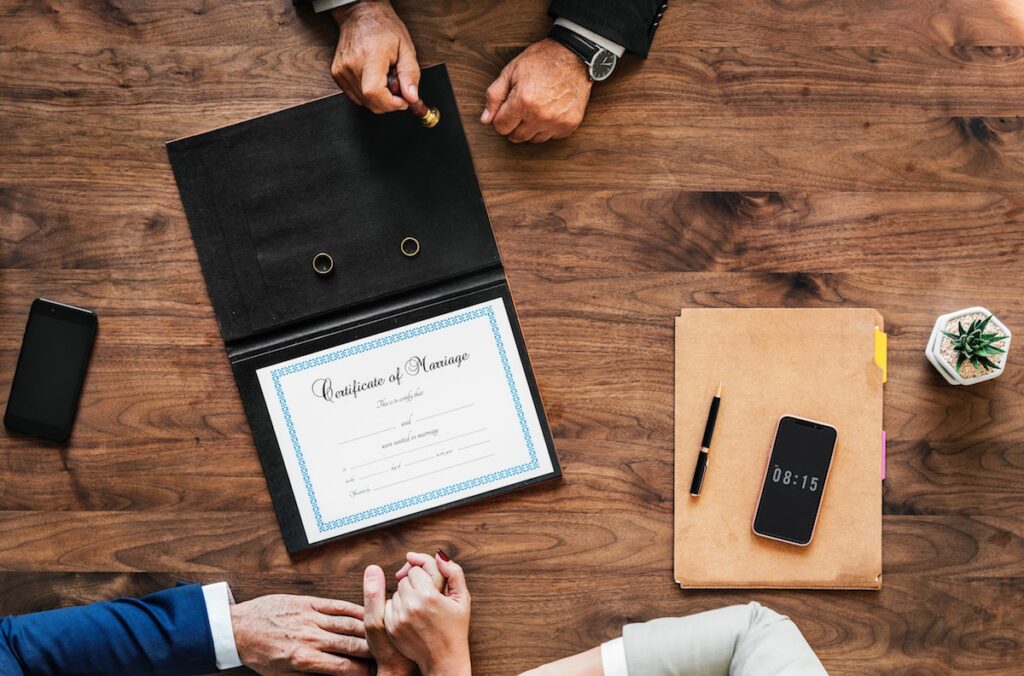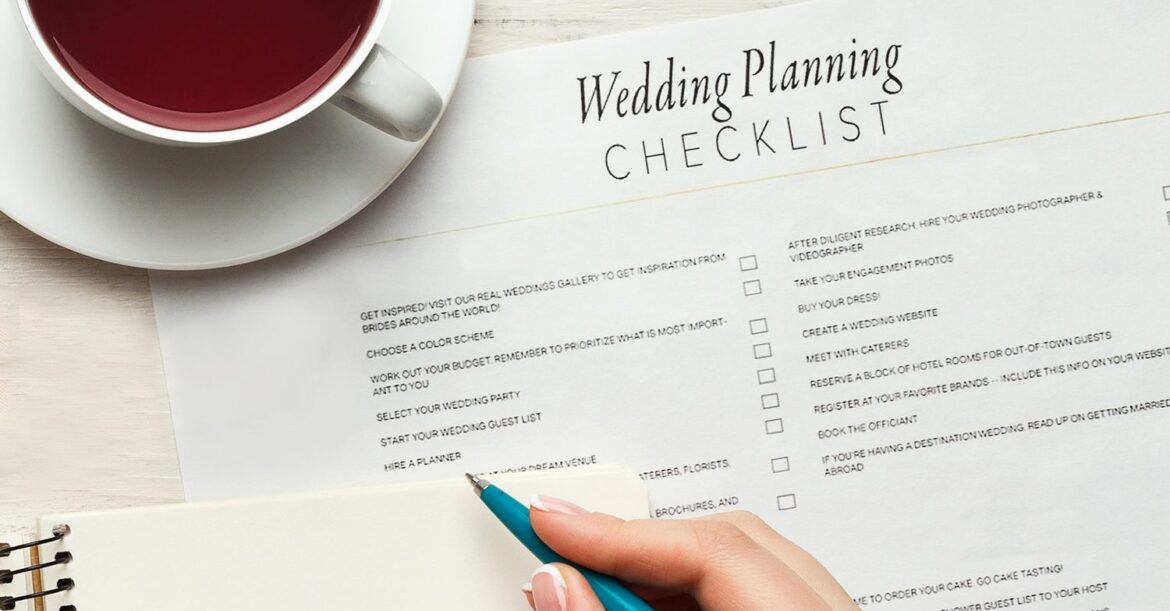If TV shows and movies are to be believed, in order to get married in a church or registry office you simply turn up with your partner on your arm, say ‘I Do’ and walk out the door as husband and wife.
What they don’t show you (probably because it won’t make very good viewing) is the paperwork and fees required by law to make your marriage official.
If you and your partner are getting married or having a civil ceremony or partnership in England or Wales, here is a list of legal documents and fees you will need to prepare.

source: boundless.com
Legal requirements for getting married in a church
To get married in the Church of England, you will need the following:
- You will need to pay a legal fee of £440 for weddings taking place in 2013, but this price may vary depending on your circumstances. You can view a breakdown of the legal fees on the Church of England website.
- Most Church of England marriages require banns to be published before the wedding ceremony. Banns are an announcement made in church that state your intention to marry, and provide a chance for anyone to put forward a reason why the marriage may not lawfully take place. They must be read out in church for three Sundays during the three months prior to the wedding.
- You will need to have at least 2 witnesses at the ceremony. There is no minimum age for witnesses, however if you’re thinking of having a witness below the age of 18, you should ask your Vicar for further advice.
- You must register your marriage. The cost of registering should be covered in the legal payment you have made to the church.
If you want to have a religious ceremony, be it Catholic, Muslim etc, you will need to check with your local place of worship to find out what specific requirements they may have.

source: theknot.com
Legal requirements for civil ceremonies or civil partnerships in a register office
- You will need to take proof of your name, age and nationality such as your passport, driving license or birth certificate. You will need at least 2 of these documents.
- The registrar will need a recently dated document with your address on it such as an electricity bill or bank statement.
- Each of you will need to pay a £35 fee.
- The marriage will need to be officially registered. To register, there is an additional fee of £45, but this may cost more depending on the venue.
- You will also need a marriage certificate to prove your marital status – this will cost £4.
Please note that there are different rules and regulations when marrying in Scotland and Northern Ireland. To find out more visit the UK government website.
For more help and advice on how to prepare for marriage, read our blog.

